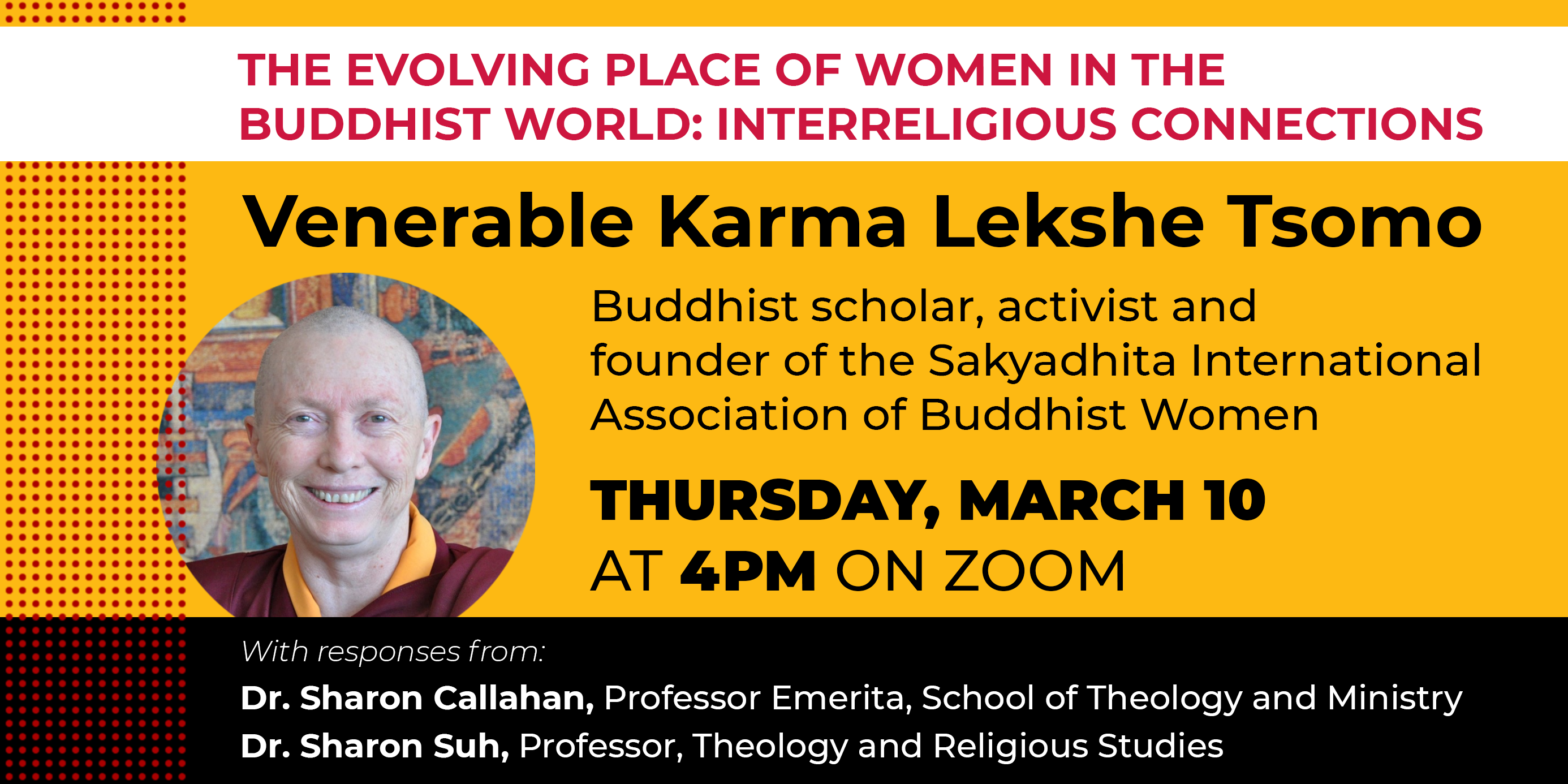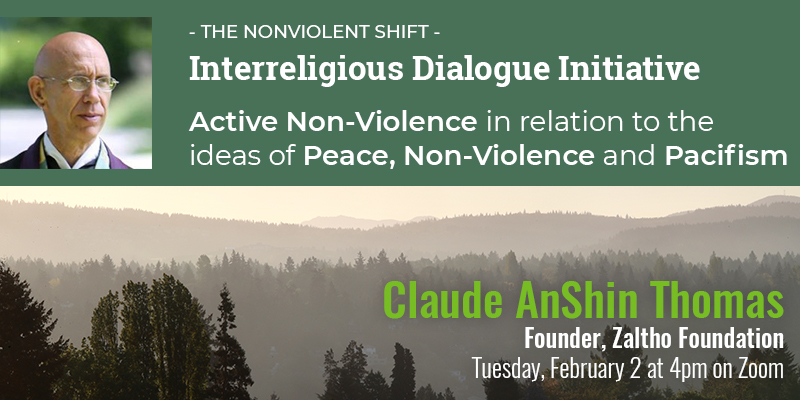
Past IDI Events

SPRING 2022:

"Being a little off, in and out and up-tempo: A Catholic priest falling in love with Shingon Buddhism"
Tuesday, May 24, 5-6:30pm on Zoom
Thierry Jean Roboüam, SJ, is an accomplished scholar in Japanese Buddhism, especially Shingon, the esoteric Buddhist practice that in Japan goes back to the early Ninth Century when Kūkai (also known as Kōbō Daishi) traveled to China and brought back what is now one of the only surviving Vajrayana lineages in East Asia. What is more remarkable, Fr. Roboüam is the first and only Jesuit in history to also complete the arduous work to become a Shingon priest. Fr. Roboüam will speak about his personal spiritual development, including how he came to hold these two different practices together in his own life.
A short response will be offered by the Reverend Taijo Imanaka, the Shingon priest at Seattle Koyasan Temple.
Thierry-Jean Robouam, SJ, is currently the director of the Loyola Centre for Ecology & Justice in Sri Lanka. He is also a Research Fellow at Koyasan University, where he was also a professor from 1997-2019 and lectured on Philosophy and Comparative Religion. He received his doctorate from the Jesuit School of Theology at Berkeley in the field of Experiential Theology on Buddhist and Christian dialogue. For a sampling of his articles, see: https://sophia.academia.edu/ThierryRobouam
WINTER 2022:
The Evolving Place of Women in the Buddhist World: Interreligious Connections
Thursday, March 10 at 4pm on Zoom
Join us for this first IDI conversation of the year with Venerable Karma Lekshe Tsomo, a Buddhist scholar and activist with an international reputation and outreach and founder of the Sakyadhita International Association of Buddhist Women.
Venerable Karma Lekshe Tsomo has taught at the University of San Diego since 2000. She integrates scholarship and social activism through the Sakyadhita International Association of Buddhist Women and Jamyang Foundation, an innovative education project for women in developing countries, with 15 schools in the Indian Himalayas, Bangladesh, and Laos.
Respondents to Venerable Karma Lekshe Tsomo's presentation:
Dr. Sharon Callahan, Professor Emerita, School of Theology and Ministry, and Dr. Sharon Suh, Professor, Theology and Religious Studies and current President of Sakyadhita International Association of Buddhist Women.

SPRING 2021:
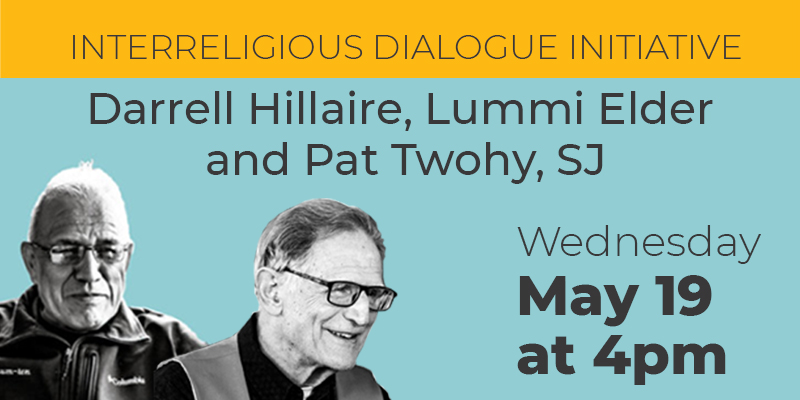
Interreligious Dialogue Initiative
Darrell Hillaire, Lummi Elder and Pat Twohy, SJ
Moderated by Dr. Jason Wirth, IDI Chair and Professor, Philosophy
Wednesday, May 19, 4-5:30pm PST on Zoom
Please join us for this unique opportunity to learn about eco-spirituality from two cherished spiritual leaders. The topic will be twofold: Lummi spirituality in dialogue with Jesuit spiritual practice as well as Lummi reflections on ecology and earth care.
Darrell Hillaire, a highly esteemed leader and the executive director of Tse-sum-ten and Setting Sun Productions, has served as a coach, mentor, teacher, and leader for the Lummi Nation for more than twenty years (read more here). Pat Twohy, SJ is the author of two seminal works, Finding a Way Home and Beginnings: A Meditation on Coast Salish Lifeways. He has lived with and served indigenous peoples of the Northwest for four decades, including eleven years with the Colville Confederated Tribes in Eastern Washington and more recently the Swinomish and Tulalip Tribes of the Coast Salish Peoples.
WINTER 2021:
Active Non-Violence in relation to the ideas of Peace, Non-Violence and Pacifism
Tuesday, February 2 at 4pm PST via Zoom
Claude AnShin Thomas is a Vietnam combat veteran turned Zen Buddhist monk, author, and speaker who will explore the difference between the ideas of peace, non-violence, and pacifism and a commitment to the reality of “active" non-violence.
WINTER 2020:
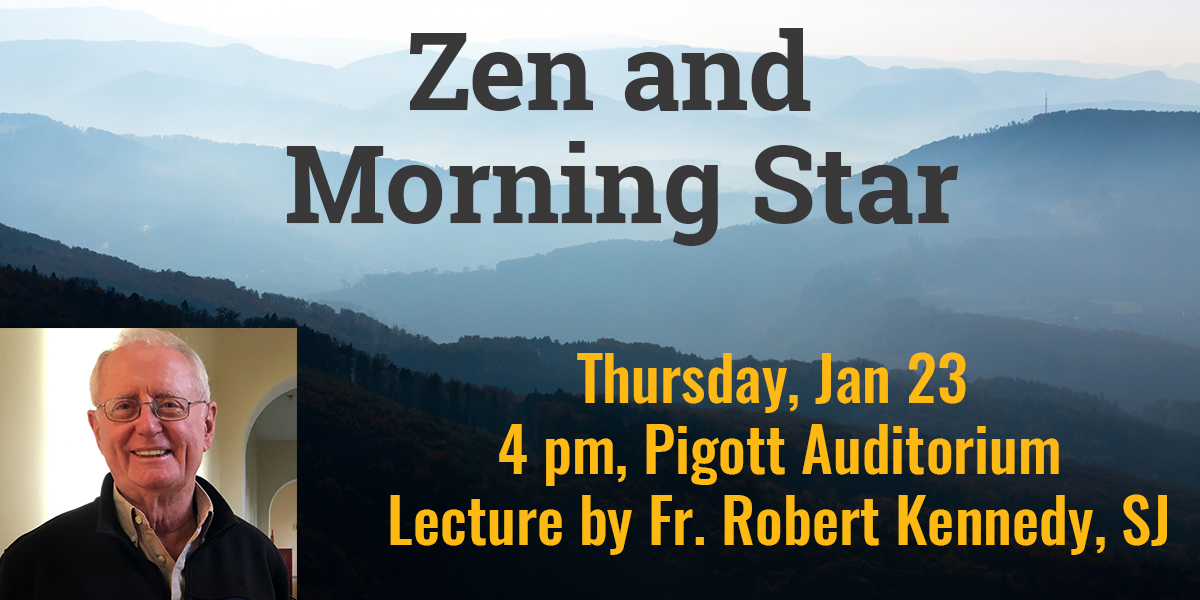
Zen and Morning Star with Fr. Robert Kennedy, SJ
Thursday, January 23th
4 pm, Pigott Auditorium
Robert Kennedy is one of three Jesuits in the world who answer to the titles “Father” and “Roshi” or venerable Zen teacher. He is not only a Jesuit priest and Zen master, but also a psychotherapist and former professor of theology at St Peter’s College in New Jersey. He is a representative of the Institute for Spiritual Consciousness in Politics at the United Nations. He is the author of Zen Spirit, Christian Spirit and Zen Gifts to Christians. Watch the recording of the lecture below:

FALL 2019:
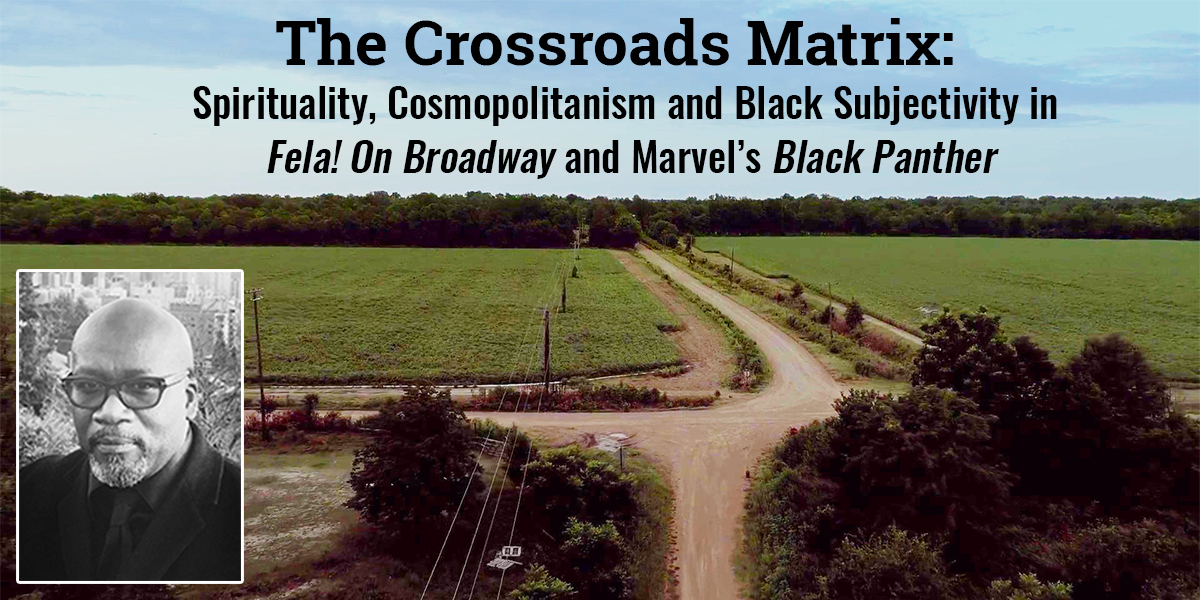 The Crossroads Matrix: Spirituality, Cosmopolitanism and Black Subjectivity in Fela! On Broadway and Marvel’s Black Panther
The Crossroads Matrix: Spirituality, Cosmopolitanism and Black Subjectivity in Fela! On Broadway and Marvel’s Black Panther
By Saheed Yinka Adejumobi, Ph.D., Department of History, Global African Studies, and Film Studies
Wednesday, Oct 23
4 pm, Harding 143
When modern European Christian missionaries along with African apostles and converts translated the Holy Bible into African indigenous languages and myths, they simultaneously transmogrified the Yoruba deity Esu, the guardian of the Crossroads, into the biblical Satan. In many Christian communities throughout the Africa diaspora, the Crossroads became associated with a pathological site where a pact is to be struck with the Devil in exchange for knowledge and power; and the potential cost of this exchange is the loss of human lives or souls.
An alternative interpretation rooted in West African Yoruba cosmology holds that the Crossroads is a portal through which humanistic utopian impulses can be actualized. In this presentation, I explore the African Crossroads Matrix as a metaphor for both material and psychological sacrifice, appreciating lessons of the past, and embracing the potential of new ideas, both material and spiritual. These forces, I argue, make the Crossroads a zone for the exploration of future histories reflecting cosmopolitan ideals that uphold more equal post-hegemonic and even post-racial imaginations.
We often take for granted, in contemporary settings, how subjective definitions of spirituality, visions of moral order, and power are reified through knowledge production and the culture industry. I engage with two major artistic productions that reside at the center of the Crossroads Matrix: Fela! On Broadway (2008-2012) and Marvel’s Black Panther (2018), both conceived, funded and produced in North America but with stories, semiotics and aesthetic research done in Africa. These works challenge post-colonial geopolitics, modern global ethics, and Africa’s general exclusion from enjoying the full benefits of its natural and cultural resources.
Drawing on these themes, my presentation asks, who is a full person? Who is Cosmopolitan? Who controls narratives of the past, the present, and the speculative future? How have people of African heritage defined intellectual, semiotic, aesthetic and cultural expressions throughout periods of slavery, colonialism, dislocation, exile and migration? What have they done with timeless exposure to new ideas of spiritual and material significance? Do African-derived spiritual and humanist values deserve more recognition for their ability to absorb new ideas and pervade creative and expressive cultures on a global scale?
